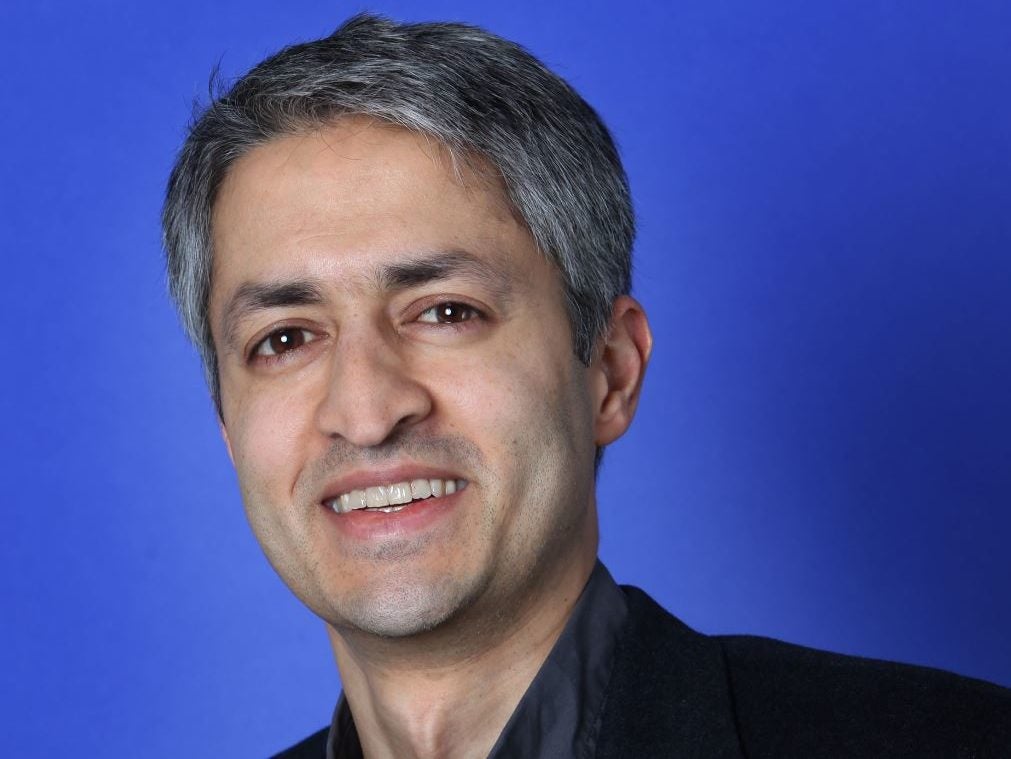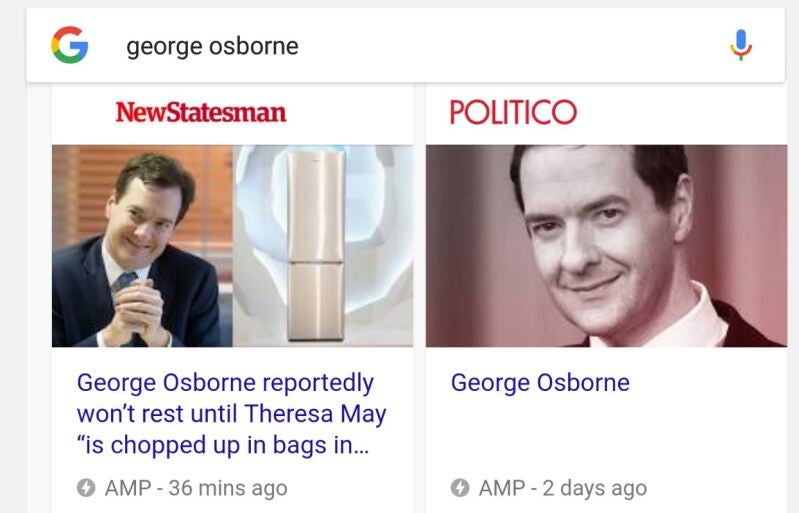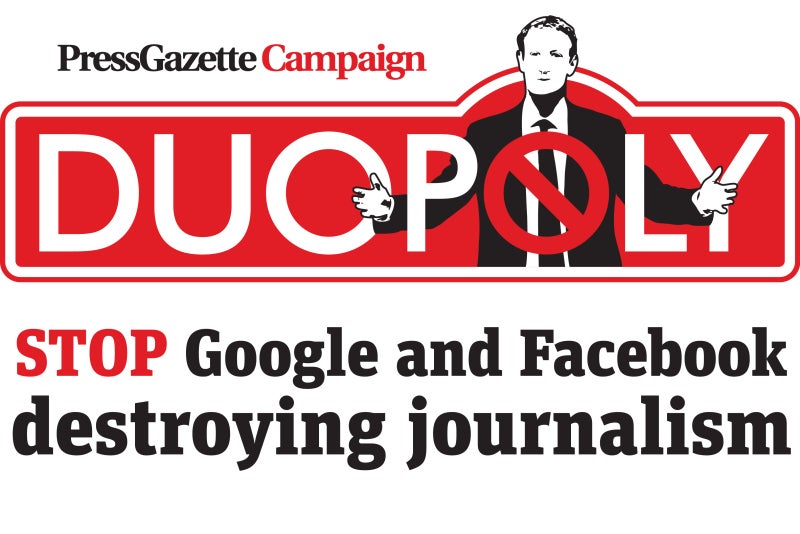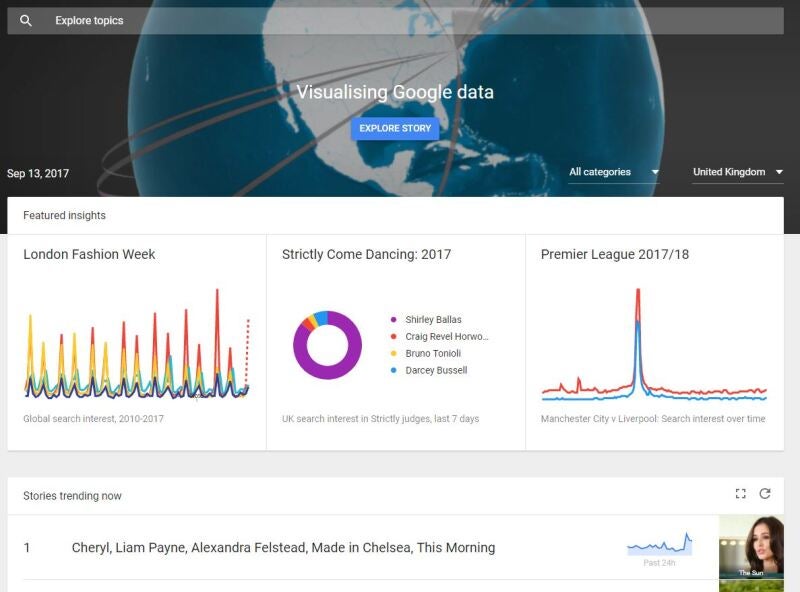
A leading Google executive has told Press Gazette the US web giant is “very concerned about the news industry” at all levels and committed to “doing more” to help it.
The company’s director of news partnerships, Madhav Chinnappa, spoke to Press Gazette for our Journalism Matters podcast at the technology company’s offices off Shaftsbury Avenue – one of two huge bases it has in London.
Press Gazette’s Duopoly campaign has warned that Facebook and Google are harming the journalism industry by sucking up most of the £10bn plus spent on digital advertising annually in the UK.
According to media strategists OC&C, by 2020 the pair will take 71 per cent of all the money spent in the UK on digital advertising, leaving little space in the market for news publishers.
Google alone takes at least £5bn a year in digital advertising in the UK – more than ten times the share taken by every national and regional newspaper titles.
Their detractors argue that Facebook and Google make much of their profits from distributing news content, but fail to return a fair share of revenue to publishers.
While Facebook appears to be hoovering up most of the display digital advertising, Google makes most of its money from search adverts.
Chinnappa says Google has been doing its bit via the Digital News Initiative (DNI), a project which has seen it collaborate with publishers on developing new technology. It is also two years into a three-year plan to hand out €150m in grants to encourage innovation.
He cites AMP, or accelerated mobile pages, as an example of how Google has helped news publishers.
This is a widely adopted form of HTML which enables news stories to be easily syndicated across various platforms and also appears to give them extra prominence when Google is used on mobile.

“Eighteen months or two years ago [publishers said] we are getting inundated with these platforms coming to us and saying give us access to your content – from Facebook Instant Articles to Snapchat Discover to Twitter Moments to Google Play Newsstand – they said: ‘It’s confusing can you help?’
“Our engineers looked at that and diagnosed the problem is the mobile web is too slow. We developed AMP as an open source initiative to try and solve that problem to allow publishers to focus on content, to do the tech in a very light way that’s available for everyone.”
Asked why the news industry was important to Google, Chinnappa said: “Some are values-based reasons. Google is a company that has values. We believe an informed citizen makes for a better society and access to information is important, that’s part of our mission.
“The news industry is a core part of that.
“Our users are very interested in news and one of the things we try to do is provide them with the highest quality information in our results as we can.
“We also think we are very aligned philosophically in things like the open web and access to information. That’s why we spend quite a lot of effort collaborating with the news industry.”
Chinnappa’s job is to foster good relations with editors and publishers. So what was his reaction to Press Gazette’s campaign, launched in April, and its slogan “stop Google and Facebook destroying journalism?”
 “It was slightly disappointing since I think Google does help with journalism. It highlights a point that Google is very misunderstood and its role in the news ecosystem is misunderstood and, to be completely direct with you, I think Google shoulders a lot of the blame on that.
“It was slightly disappointing since I think Google does help with journalism. It highlights a point that Google is very misunderstood and its role in the news ecosystem is misunderstood and, to be completely direct with you, I think Google shoulders a lot of the blame on that.
“For many years I don’t think we communicated very well. We took a very engineering approach to a lot of the things that we did with the news industry. We have been trying to change that and DNI is a significant step change in how we are engaging with the news ecosystem.
“I genuinely believe that Google is a positive part of the ecosystem and we have a role to play. And what we are trying to do through DNI is have the dialogue so how we can do this in the best way.
“Because at its heart Google is an engineering company, it is not a news company – we do have people from the news industry, like myself, but at its core it’s an engineering company.
“The best things come when news people and engineers and product people have that dialogue about what’s really good for the news ecosystem.”
But wouldn’t that news ecosystem benefit if Google shared more of its billions with the originators of the content it distributes?
“It’s very important to realise the role we play in the display advertising market – we are an ad tech supplier in the display market.
“If you’re a publisher you can use our tools. Whether its tools like Double Click for ad serving or other tools that we have. We are a supplier like many other others.
“The reality of that is we only make money when publishers make money because we’re a supplier. The vast majority of the revenue, normally in excess of 70 per cent, goes to the publisher.
“A lot of the statitistics have conflated search and display and not taken into account the revenue-shares.”
But isn’t the vast majority of the £5bn or so Google makes out of search advertising in the UK money that would have been paying journalists’ wages via classified ads in newspapers ten years ago?
“Potentially, but it also goes beyond that, a lot of what we have found is it comes from advertisers who never advertised before at all.”
Google’s search algorithm appears to encourage a news culture where websites spend vast resources copying content.
Press Gazette has highlighted the issue of a “ripping” culture in some newsrooms, where journalists, particularly at national websites, complain they are forced to spend all day rewriting stories found on other sites.
Could Google do more to reward the originators of content, rather than those who copy it?
“The euphymistic term for ripping is derivative content. It’s an issue that we take very seriously. The challenge is the news ecosystem has always operated in a derivative content way and where do you draw the line on someone ripping someone off and someone building a story?”
Given that Google is such a large source of traffic for news publishers, typically around a third, what advice does Chinnappa have for those wishing to do better with the search engine?
“Google never talks about SEO, and I’m not a technical person, but when people have asked me these questions, sometimes I’ve found it amazing what’s publicly available that people don’t know about.
“When I was at the BBC I used to complain about stuff and the Google person said have you submitted a sitemap to Google News?
“I went back to our technical team and they said ‘oh, no’.
“Without sounding ridiculous you can Google this issue. We have something called the Publisher Centre for Google News.
“You can go in and find out things to maximise your exposure in Google News. You can decide what you want and don’t want. Google search has the webmaster tools area.
“There is also Google Trends (pictured below) – that product used to be showing what people searched for yesterday. Now it’s pretty much live and really useful for journalists.”

Chinnappa also recommended the website Google For News Partners and even suggested that editors drop him a line at madhav@google.com if they want to find out more.
With the continuing pressure on advertising it looks like more news publishers are likely to adopt paywall models in future. Some complain that Google is less helpful when it comes to paid content models because of its reliance on free information.
“We are business model agnostic,” says Chinnappa. “With a paywall publisher we play that role of sampling [content for users]. That’s a really important thing.
“Paywall publishers think about the concept of the funnel. They want to get their content to as broad an audience as possible to get them through the funnel to get them paying…
“There is definitely more we can do. The future of news business models is that people need multiple revenue streams.”
It appears that local advertisers are increasingly spending their money with creators of algorithms rather than employers of journalists.
With 18 UK local newspaper titles gone this summer the feeling is the feeling is that for many – time is running out. Is Google going to do more to help the local press?
“Yes we are definitely going to be doing more. In terms of specific topic areas, local is an important one.
“We definitely want to continue on the path that we are on and do more. We want to continue with the dialogue because we want the feedback. It’s the feedback that creates the really interesting things.
“It was the feedback that helped create AMP. Feedback about complexity of video that helped create the Youtube player for publishers programme. We definitely want to continue with that feedback.”
Chinnappa seems genuine in his support for the news industry, but many fear that the bigger picture for the $90bn a year turnover company is the bottom line.
Some say news publishers are “collateral damage” in the battle for global internet dominance between Google, Facebook, Amazon and Apple.
Are people further are up the corporate ladder at Google really bothered about the fate of the news industry?
“They are very concerned about the news industry at the highest levels,” says Chinnappa. “Google is a company that has values and those values are shared throughout the company and come from the top.
“If you look at DNI, it was sponsored by Sundar, our CEO – him and our senior team are thoroughly involved in everything we are doing. We report progress back to them.
“The interest in the news industry is at that highest levels in Google.”
Picture: Google
Email pged@pressgazette.co.uk to point out mistakes, provide story tips or send in a letter for publication on our "Letters Page" blog
